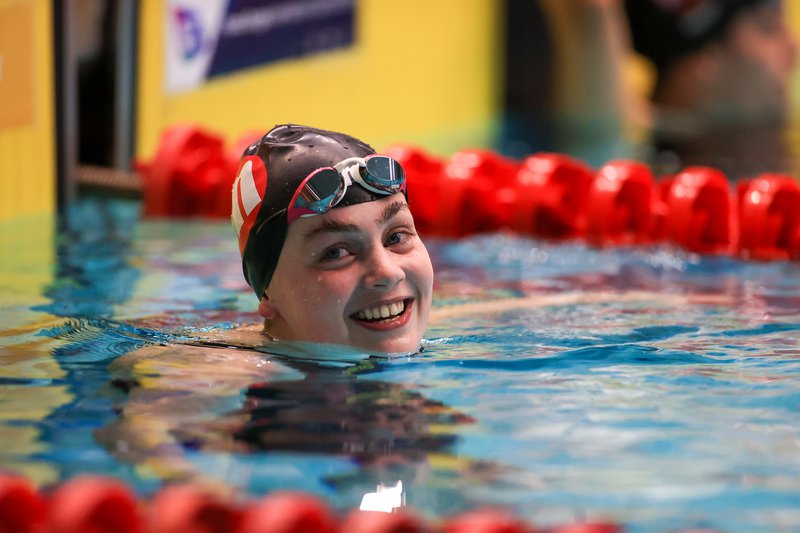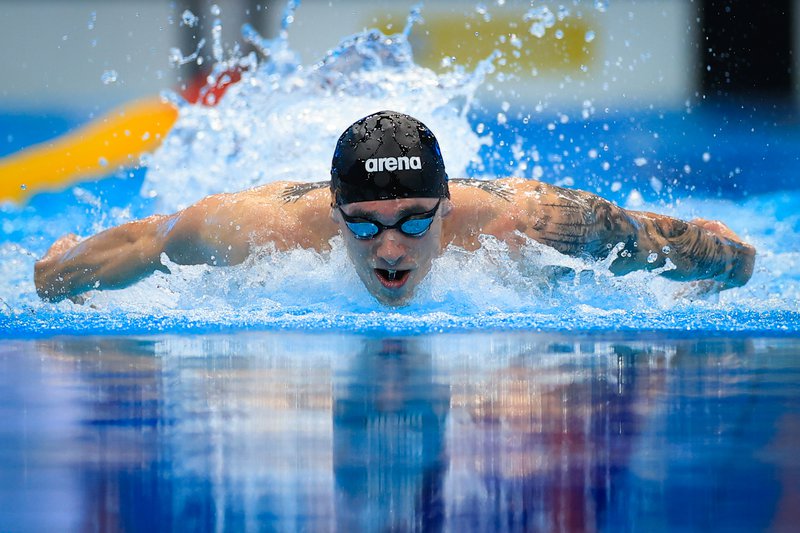Winter illnesses can really get in the way of training and competition preparation, so what steps do athletes take to stay well during the winter season?
Working with support from team nutritionists, athlete health leads and coaches, athletes will take a number of practical steps to minimise the risks of illness during the British winter. Paralympic Champion, Tully Kearney and Olympian, Jacob Peters share an insight on how their routines adapt to the colder months, and what strategies they implement right throughout the year.
What steps do you take to stay well in winter?
TK: To help prevent illness in winter I take care to dry my ears post swim, wrapping up warm and wearing a hat before heading outdoors. I’ll also try to limit my load out of the pool in everyday life so that I don’t get overtired and run down.
JP: Obviously there’s practical things like handwashing thoroughly we should be doing all year round to stop infection spreading, but additionally in winter to protect myself I make an effort to wrap up nice and warm whenever heading outside, as well as making sure I get all my vitamins and minerals in through a balanced diet, topped up by taking Healthspan Elite supplements to keep me healthy.
What is your everyday winter routine (exercise, socialising etc.)?
TK: In winter I do have a habit of to reducing my socialising to lower the chance of picking up a cold or cough, and I’ll use that time to ensure I get sufficient rest between training sessions.
JP: During the week I have my usual training programme which consists of multiple swim, gym and Pilates sessions, but when it gets to the weekend I like to see my girlfriend and my family and just relax watching films and playing games.

Does your training change in winter compared to other seasons?
TK: Unless ill, my training remains the same in the pool, but the intensity of the land based session’s increases as part of the training roadmap towards the next season.
JP: My training varies a lot throughout the season but not because of the weather. It really depends on what our target for the year or major competition cycle is, with things like training camps and other swim meets to consider.
Do you stop training when you’re ill to recover or do you carry on at a less intense rate?
TK: Depending on what symptoms I have, I’ll consult with the support team on if I am ok to train. If I have symptoms above the neck and I’m ok to train I will complete the warm up initially and then assess - if symptoms get worse I’ll stop and discuss with my coach as to whether I should get out or reduce the intensity or duration of the session.
JP: It really depends on how Ill I was. If I just had a running nose I would keep training with social distancing in place as to not infect training partners, but if I was a bit more ill I’d take 1 or 2 sessions off in order to let my body’s immune system kick in at full strength at the discretion of my coach.

Does your diet change in winter compared to other seasons?
TK: My diet is pretty consistent throughout the year, but I eat more red meat in the winter.
JP: Not overly! I try to eat a balanced diet all year round, and because I have the backup of the Healthspan Elite Sports Essentials I know I’ll be stocked up on vitamins and minerals.
Do you take any supplements to support your immune response? And does this routine change compared to other seasons
TK: My supplement routine doesn’t change throughout the year, I use Healthspan Elite’s Sport Essentials daily, which consist of a multivitamin, omega 3 and a probiotic. I’ll also take Zinc lozenges and Vitamin C at the first sign of a cough or cold to help reduce severity and duration of an infection.
JP: I use Healthspan’s Vitamin D3 tablets and Sports Essentials. I tend to take my Vitamin D all year round due to the lack of sunlight we tend to get in the UK but some people prefer to only take it between the winter months.
Healthspan Elite’s Head of Nutrition, Rob Hobson, commented:
“The products used by Tully and Jacob are among those we supply to British Swimming. Vitamin C, D, zinc and probiotics are particularly suited to immunity and opting for these supplements highlights how important this area of health is to both athletes. Athletes are particularly prone to upper respiratory tract infections especially during the winter so making immunity a priority can help reduce any disruption in training and competition”
As British Swimming’s Official Vitamin and Supplement Partner, Healthspan have been supplying certified and Informed-Sport tested high performance nutrition products to the British Swimming, Para-Swimming and Diving programmes since January 2020. Using the code SWIM21 you can access a 20% off all Healthspan and Healthspan Elite products at www.healthspan.co.uk.
Click here to find out more about our Healthspan partnership. For further swimming resources on Physical health: Swimming Injury and Illness visit our Off The Blocks microsite here.

